 Mysteries
Mysteries  Mysteries
Mysteries  History
History 10 Surprising Stories About the Texas Rangers
 Humans
Humans 10 Philosophers Who Were Driven Mad by Their Own Theories
 Miscellaneous
Miscellaneous 10 Video-Game-Worthy Weapons and Armors from History
 Weird Stuff
Weird Stuff 10 Psychics Who Accurately Predicted Wartime Events
 The Arts
The Arts 10 Pieces of Art Inspired by a Broken Heart
 Health
Health 10 Science Fiction-Sounding New Medical Treatments
 History
History 10 Surprising Facts About the Father of Submarine Warfare
 Space
Space Ten Astonishing New Insights into Alien Worlds
 Weird Stuff
Weird Stuff 10 Bizarre Summer Solstice Rituals Still Practiced Today
 Mysteries
Mysteries Top 10 Haunting Facts About the Ghost Ship MV Alta
 History
History 10 Surprising Stories About the Texas Rangers
 Humans
Humans 10 Philosophers Who Were Driven Mad by Their Own Theories
Who's Behind Listverse?

Jamie Frater
Head Editor
Jamie founded Listverse due to an insatiable desire to share fascinating, obscure, and bizarre facts. He has been a guest speaker on numerous national radio and television stations and is a five time published author.
More About Us Miscellaneous
Miscellaneous 10 Video-Game-Worthy Weapons and Armors from History
 Weird Stuff
Weird Stuff 10 Psychics Who Accurately Predicted Wartime Events
 The Arts
The Arts 10 Pieces of Art Inspired by a Broken Heart
 Health
Health 10 Science Fiction-Sounding New Medical Treatments
 History
History 10 Surprising Facts About the Father of Submarine Warfare
 Space
Space Ten Astonishing New Insights into Alien Worlds
 Weird Stuff
Weird Stuff 10 Bizarre Summer Solstice Rituals Still Practiced Today
10 Politicians Who Got Away With Murder
Politicians and monarchs have been responsible for the deaths of millions of people, yet some had a more direct hand in carrying out a murder or two. Often, this is the result of a duel. Sometimes, it’s accidental.
10Baron Georges-Charles De Heeckeren d’Anthes
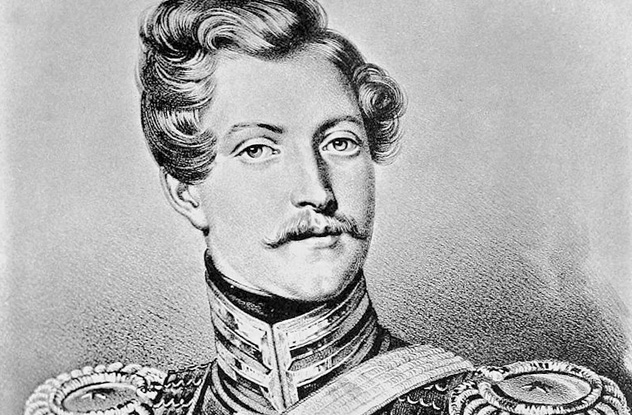
Baron Georges was responsible for the most notable duel in Russian history. The dispute was over famed Russian poet Alexander Pushkin’s wife, Natalia, who became the object of the Baron’s affections. This didn’t go over so well with Pushkin, who threatened the Baron into backing off. The Baron then wed Natalia’s sister, Yekaterina Goncharova, possibly to get closer to the lovely Natalia. This didn’t sit too well with Pushkin, either.
The two quarreled, letters were written, and a duel was declared. On January 27, 1837, the two men faced each other and fired. The Baron got the first shot in and made it count. The wound was to Pushkin’s stomach, and it ultimately killed him. Pushkin had been in several duels before and was able to get off his shot, though he only grazed his enemy’s arm.
Before passing, Pushkin wrote a letter pardoning the Baron of any misdeeds, but he was arrested by the Russian authorities anyway. He was later pardoned by the emperor and stripped of his rank of baron.
This didn’t end his career, though; he later went on to serve in the Senate of the Second French Empire after serving in the local and National Constituent Assemblies. Though his actions in the duel never allowed him to return to Russia, he lived out his life in office as a senator until his death in 1895 at the age of 83.
9William J. Graves
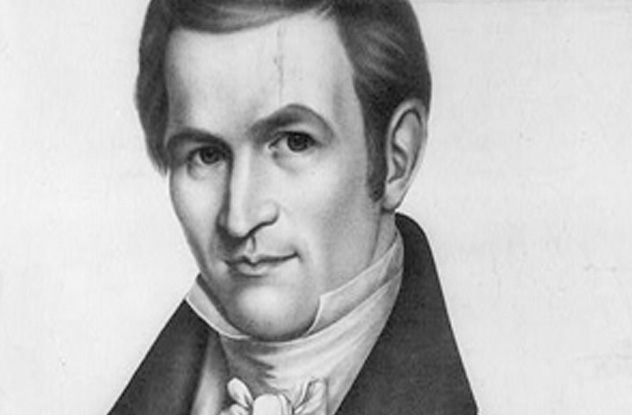
Back in the days of dueling, it was customary to have someone as your second, who would fight in your stead if you were unable. United States Representative William J. Graves was second to New York newsman James Webb, who was set to duel Congressman Jonathan Cilley over a matter of a corruption charge being made against the newspaper editor.
Congressman Cilley was not accustomed to firearms, and for some reason, Graves was allowed to use a rifle. While aiming at his opponent’s chest, Graves shot the man in the femoral artery in the leg. He bled out in less than two minutes.
Killing a congressman wasn’t really a career-ender in 1838. Graves went on to become a member of the Kentucky State House of Representatives in 1843. He served until his death in 1848, never having been held to account for killing Representative Jonathan Cilley.
8David S. Terry
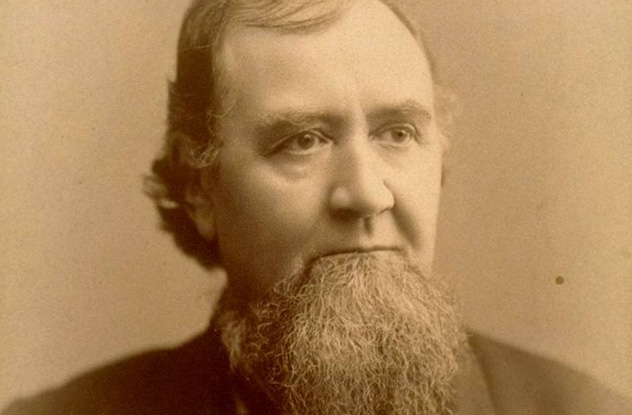
David S. Terry was the Chief Justice of the California Supreme Court when he got into a public disagreement with former friend David Broderick, who just so happened to be a sitting United States senator at the time. The two quarreled over offensive comments Terry made about Broderick at a state convention in Sacramento, so the two decided to fight it out.
After choosing pistols with hair-triggers, the two faced off, but Broderick’s weapon discharged early. According to the rules of the duel, Broderick had to remain still while Terry took his shot . . . which got Broderick in his lung. He died a few days after the duel, but Terry was acquitted of murder, completed his term, and went on to serve in the Confederate States Army during the United States Civil War.
This wasn’t Terry first run-in with the law. In 1855, just a few months after winning a seat on the California Supreme Court, he’d gotten into a tussle with a vigilante who tried to arrest him over some disagreement about corruption. His response was to take his favorite weapon, a Bowie knife, and jam it into the man’s neck. Though he was arrested, the man defied Terry and survived, so Terry was let out of jail without charge.
Terry survived the war but never again served in office. He died in 1889 when he thought it would be a good idea to slap Supreme Court Justice Stephen J. Field a couple of times across the face. His gesture was returned with a decidedly deadly shot from the justice’s bodyguard. His wife went insane shortly after the encounter and spent the next 45 years in a mental institution.
7Ted Kennedy
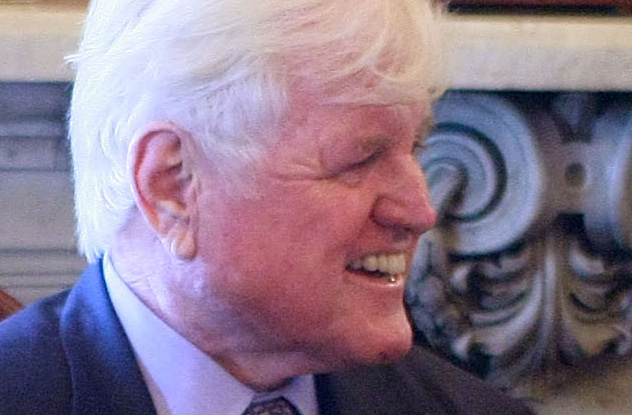
Kennedy was a newly elected United States senator when he drove his car off a road into a pond, where it overturned and began to submerge. He swam to safety, but his passenger, Mary Jo Kopechne—a teacher, secretary, and campaign specialist—died in the car.
While Kennedy didn’t explicitly kill Kopechne, he was responsible for her death—a death he failed to report for nine hours after the accident occurred. He went home, took a nap, and then later admitted to leaving the scene of an accident. He got a two-month suspended sentence for leaving the scene and wasn’t charged in any way for the death of Kopechne.
He paid for it politically, though. He was considered a likely candidate for president, but the Kopechne death hung over him. His only attempt at the office in 1980 resulted in a win for Democratic nominee Jimmy Carter, who eventually lost to Republican Ronald Reagan.
Even though he never became President, Ted hardly lived out his life in shame and misery. He served almost 50 years as United States Senator from Massachusetts, right up until his death in August 2009.
6John Wilson
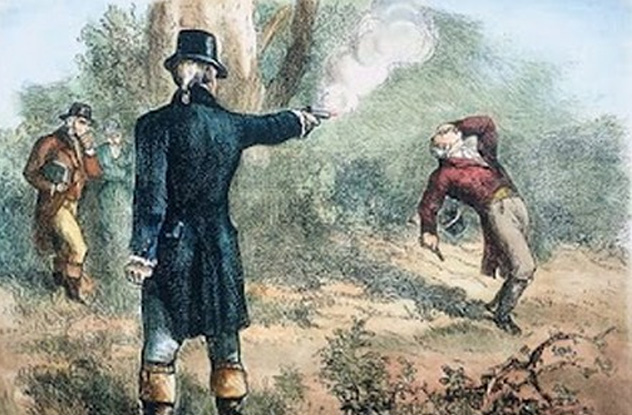
Most duels fought by politicians and those seeking political office were over affairs of honor and public insult. In Canada, the last duel to end in a fatality occurred over a woman.
Prominent law students John Wilson and Robert Lyon both found affection from schoolteacher Elizabeth Hughes. Instead of getting drunk and fighting it out over the young lady, the two men met on June 13, 1833 over Tay Canal outside of Perth, Ontario. Raising pistols, the two men fired simultaneously and both missed.
While dueling etiquette of the day allowed for the two men to walk away with their heads held high, Lyon’s second, Henry La Lievre, argued that they should fire again. After some debate, the two men reloaded, readied, and fired. Lyon received a shot to the heart and died on his feet.
Shortly after, the survivors were arrested, but Wilson was acquitted and went on to marry Miss Hughes. Wilson never suffered any consequences from the encounter and later became a judge and member of the Canadian Parliament, a post he held until his death. A plaque commemorates the location of the duel, which notes it as the “Last Fatal Duel, 1833.”
5Robert Crittenden
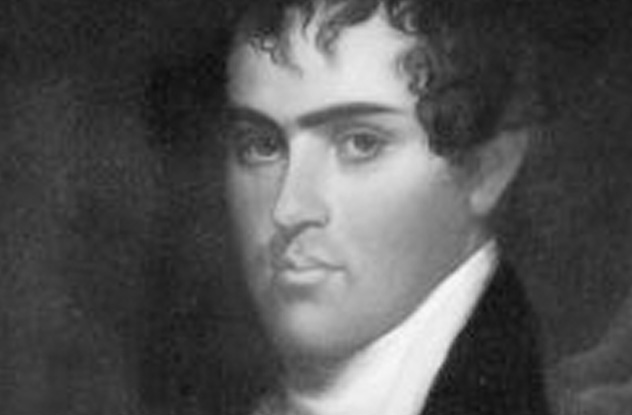
Robert Crittenden was a successful attorney and politician who served as Secretary of Arkansas and also as interim governor for a time. While serving as secretary, he got into a bit of an argument with a friend-turned-opponent, Henry Wharton Conway.
The duel took place on October 29, 1827, near where the White and Mississippi Rivers meet. Both men fired, but only Crittenden’s bullet found flesh. Conway’s round only grazed Crittenden’s coat, but he received a shot to the abdomen and died a few hours later.
All this was due to a public argument between the former friends regarding a contested election, the appropriation of funds, and whether or not each made false statements about the other. Each of the two men felt that their honor had been insulted, and there was nothing for it but to trade lead.
Crittenden didn’t outlive his rival for long. He died at 37, only seven years after the duel.
4Samuel Price Carson
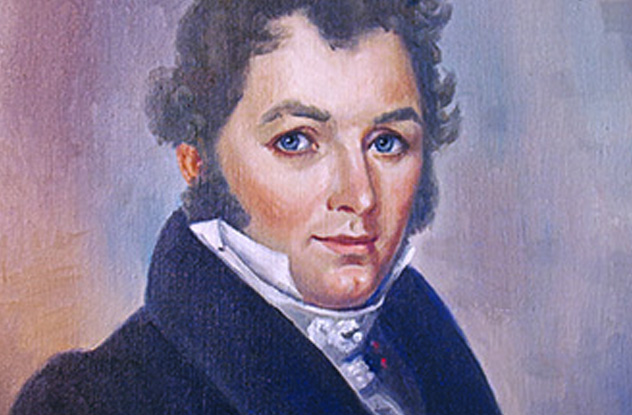
Samuel Price Carson served in numerous positions of the United States Congress and North Carolina State Senate. He was also responsible for killing his political rival, Robert B. Vance, in a duel at Saluda Gap, South Carolina on November 5, 1827.
Vance thought it would be a good idea to call Carson’s father a traitor who’d aided the British during the Revolutionary War. Carson didn’t take too kindly to that, so he got in touch with buddy David Crockett and trained for a duel.
When the duel kicked off, Carson easily shot and killed Vance with a round to the gut. Vance died only a few hours later. Crockett rode back to the Carson house and proclaimed, “The victory is ours!”
The duel had no negative effect on his career, and he was later reelected to the Congress and ultimately moved to Texas. He did not take part in the defense of the Alamo, but the loss of Crockett in that battle deeply affected him. He later became the first Secretary of State for the new Republic of Texas and served under President Sam Houston.
3Thomas Hart Benton
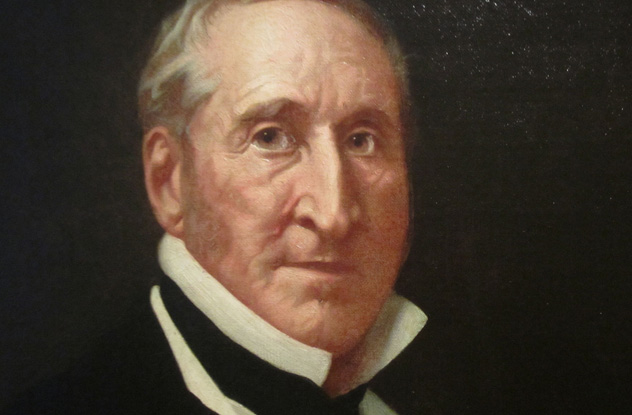
While an attorney, Benton became embroiled in a heated exchange with his opposing counsel, Charles Lucas, over the honesty of their arguments. Later, Lucas accused Benton of being delinquent in paying his taxes, which followed with the most horrid of all insults: Benton called Lucas a puppy.
Satisfaction was demanded, and the two went to a lovely place called Bloody Island, a sandbar in the Mississippi River considered neutral territory between Missouri and Illinois. The two traded bullets in the traditional dueling style, with Benton receiving a graze to the knee and Lucas taking a non-fatal shot to the throat.
Initially, Lucas claimed to achieve satisfaction from the encounter, but Benton was not as pleased with the outcome. They decided to fire a second volley of shots, and Benton promptly shot Lucas in the chest, killing him.
Benton wasn’t new to violence at this point in his life. Following his time in the War of 1812, where he reluctantly saw no combat, he and his brother entered into a feud with Andrew Jackson, whom he shot in a street brawl in Nashville, Tennessee. (Both he and his brother fired, and it isn’t certain whose shot landed.) Though he only wounded Jackson, and the two men later became dear friends and political allies, Jackson carried fragments of Benton’s round with him for the rest of his days.
Following the duel with Lucas, Benton went on to serve as a United States Senator from Missouri and eventually finished his career in the US House of Representatives for Missouri’s first district.
2Lachlan McIntosh
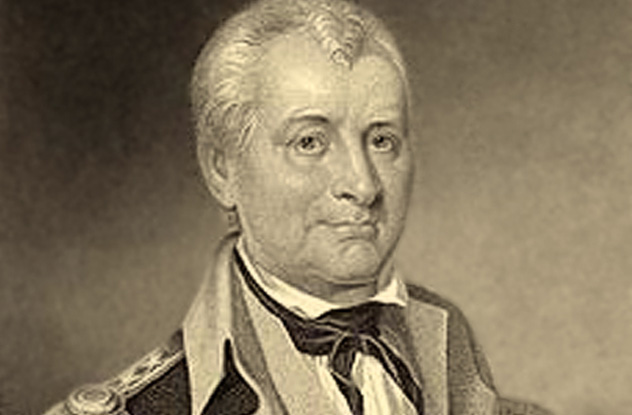
History has forgotten a lot of people over the years, and it’s likely you haven’t heard of Lachlan McIntosh. He was a British-born advocate for American independence and prominent leader of the Revolution in Georgia. He was also the man who killed Button Gwinnett, the second governor of Georgia.
If you don’t remember who Button was, take a look at the Declaration of Independence. You will find his John Hancock just two spaces to the left of the actual John Hancock’s signature. That’s right—the owner of the first signature on the upper left of the Declaration of Independence was killed by a political rival in Savanna, Georgia.
Gwinnett and McIntosh dueled on May 16, 1777 over a really poorly planned attempt to take Florida from the British. Gwinnett, in his role as the president and commander-in-chief of the Committee of Safety, not only locked up McIntosh’s brother for treason, but he also ordered McIntosh to lead an invasion into Florida that went really badly. McIntosh blamed Gwinnett publicly for the debacle, and the only outcome had to be a duel to obtain satisfaction.
The men fired their pistols at the same time and hit each other in the leg from a distance of 12 paces. While McIntosh was able to limp away from the incident, the wound to Gwinnett’s thigh proved fatal, and he died a few days later.
This wasn’t the end of McIntosh’s career, though. George Washington ordered him to report to the Continental Army after he was acquitted of murder. He was also elected to the Continental Congress in 1784, though he never attended a session.
1John S. Marmaduke

There’s a general understanding in the military even to this day: Kill your commanding officer, and you kill your career. That wasn’t the case for Major General John Sappington Marmaduke, a Confederate officer during the American Civil War.
Marmaduke had a disagreement with his commander, General Lucien Walker, over the battles of Helena and Reed’s Bridge, Arkansas. Though their commanding officer, General Sterling Price, ordered Marmaduke to remain at headquarters and not engage in the duel, he ignored the order and dueled anyway.
Each man missed in their initial shots, but the second volley succeeded in killing General Walker. General Price immediately placed Marmaduke under arrest but thought better of it when it became apparent that he would serve the Confederacy better on the battlefield than behind bars.
General Marmaduke never faced charges for his infamous duel with his superior officer, though he did pay for it somewhat when he was captured at the Battle of Mine Creek and remained in captivity for the duration of the war. Following the war, he successfully campaigned for and became the Governor of Missouri, where he remained in office until his death three years later.
I am an amateur graphic artist, illustrator, and game designer with a few independently published games through my game company, TalkingBull Games. I have a B.S. in History and am working on my Masters in Ancient and Classical History, so I pretty much love researching and writing about anything from the past. Look me up on Facebook, Twitter, Kickstarter, or DeviantArt.








